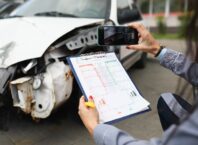Maritime and admiralty laws describe the legal options available for those who work on or around navigable waters and are injured on the job. The type of accident you were involved in can determine whether you have grounds for a claim.
There are countless types of vessel accidents that can cause severe bodily injury or death to dockers, harbor workers, seamen, sailors, oil rig workers, and other maritime and admiralty employees. Here are some of the most common types of accidents and more about how you can take action and recover the compensation you deserve.
Contents
Maritime vs. Admiralty Law
Understanding the intricacies of maritime versus admiralty laws is often only left to the experienced maritime lawyers in Houston, and other areas plagued by injuries and accidents, deal with daily. While many assume admiralty and maritime laws are the same, they did not originate that way.
These days, they are considered one body of law that covers not only compliance, international laws, and safety but how maritime accidents and injuries are handled in cases of negligence and on-the-job accidents. These laws regulate what happens on any body of water that could be considered “navigable,” such as lakes, commercial shipping lanes, oceans, and rivers alike.
Common Types of Maritime and Admiralty Accidents
In the admiralty and maritime industries, certain types of accidents are more common than others. Here are some of the ones known for producing some of the most devastating injuries and deaths:
Falling Overboard
Falling overboard is one of the most common occupational injuries fishermen and other workers suffer annually. States with the greatest numbers of falling overboard accidents include:
- Oregon
- Louisiana
- Florida
- Massachusetts
- Alaska
When victims fall overboard, they are at an increased risk of severe injuries, hypothermia, and even drowning.
Vessel Sinkings
Sinking vessels are nearly always avoidable when shipowners, captains, and crew follow safety protocols and procedures and keep the ship seaworthy.
Unfortunately, negligence and unseaworthiness are some of the top causes of vessel sinkings. Other common causes include:
- Lack of watertight covers, doors, and holds
- Navigational mistakes
- Explosions and fires
- Failure to adhere to severe weather warnings
- Steering errors
Unseaworthiness
Anytime a ship or vessel is considered unseaworthy, injured seamen may have the right to compensation and benefits under the Jones Act. To avoid compensating victims for their negligence, captains, crew, and vessel owners should ensure the ship, watercraft, or boat is safe at all times.
This includes making sure the vessel has the proper equipment, tools, and safety procedures in place. Some of the most common types of accidents and injuries caused by unseaworthiness include:
- Full-thickness burn injuries caused by worn-out engines or leaky fuel pipes that explode
- Compound fractures and bone breaks caused by falls from elevated heights or defective equipment
- Near drownings and drownings caused by unrepaired hole damage that leads to vessel sinkings
Toxic Chemical Exposure
Exposure to toxic chemicals is a significant hazard in the maritime industry. Injured maritime workers may be exposed to hydrogen sulfide gasses in confined spaces if the vessel does not have sufficient ventilation, benzene, diesel oil, gasoline, and petroleum-based products.
This can often cause severe medical conditions, including respiratory illness, Mesothelioma, and Asbestosis. Maritime workers could also suffer severe chemical burns if these substances were exposed to the skin.
Equipment Accidents
Any ship or vessel on navigable waters must have the right equipment and tools to ensure optimal safety. However, if this machinery and equipment are malfunctioning or defective, seamen and other maritime employees may be at risk. Some of the top causes of equipment accidents include poorly built tools, design flaws, and mechanical defects.
Pier & Dock Accidents
The tear and dock are crucial for ships and vessels. Without them, ports would not exist. Unfortunately, harbor workers, port workers, seamen, and other maritime employees may suffer catastrophic injuries in pier and dock accidents, including:
- Motor vehicle accidents
- Winch accidents
- Explosions and fires
- Crane accidents
- Electrocution
Onshore Accidents
Onshore accidents generally occur in harbors, shore facilities, ports, and other areas where ships and boats can be loaded and unloaded and receive maintenance when necessary. Some examples of onshore accidents maritime workers endure include:
- Conveyor belt accidents
- Crane accidents
- Slip and fall accidents
- Vessel deck accidents
Offshore Maritime Injuries
Offshore maritime work is some of the most dangerous types of employment a person could have. The work environment is often unforgiving, and many job responsibilities include the use of heavy and complex machinery.
Work on natural gas wells and oil rigs, in particular, are known for producing catastrophic incidents and injuries. Some of the most common types of accidents and events on offshore facilities include:
- Trips, slips, and falls
- Injuries caused by defective or malfunctioning equipment
- Exposure to toxic chemicals and substances
- Drill rig accidents
- Exposure to extreme temperatures
- Barge accidents
- Falling overboard
- Offshore explosions
Inadequate Training Injuries
Due to the inherently dangerous nature of the maritime industry, following necessary safety regulations and international naval laws is crucial. When maritime workers do not receive sufficient training, they can cause debilitating accidents and death.
Unfortunately, far too many maritime employers failed to provide their staff with adequate training. When this happens, they can be held accountable through a claim under the Jones Act or a personal injury lawsuit in civil court, depending on the specific details of the case.
Options After Suffering Maritime Injuries
After suffering life-threatening or debilitating maritime injuries, under admiralty and maritime laws, you have the right to compensation. The way in which she will go about recovering compensation will depend on the type of accident you were involved in and your classification as a maritime employee.
Traditional Maritime workers are entitled to compensation through the Longshore and Harbor Workers Compensation Act (LHWCA). However, injured seamen are entitled to maintenance, cure, and other personal injury damages under the Jones Act. Maritime injury attorneys can analyze the circumstances of your case and determine which options are most suitable.












